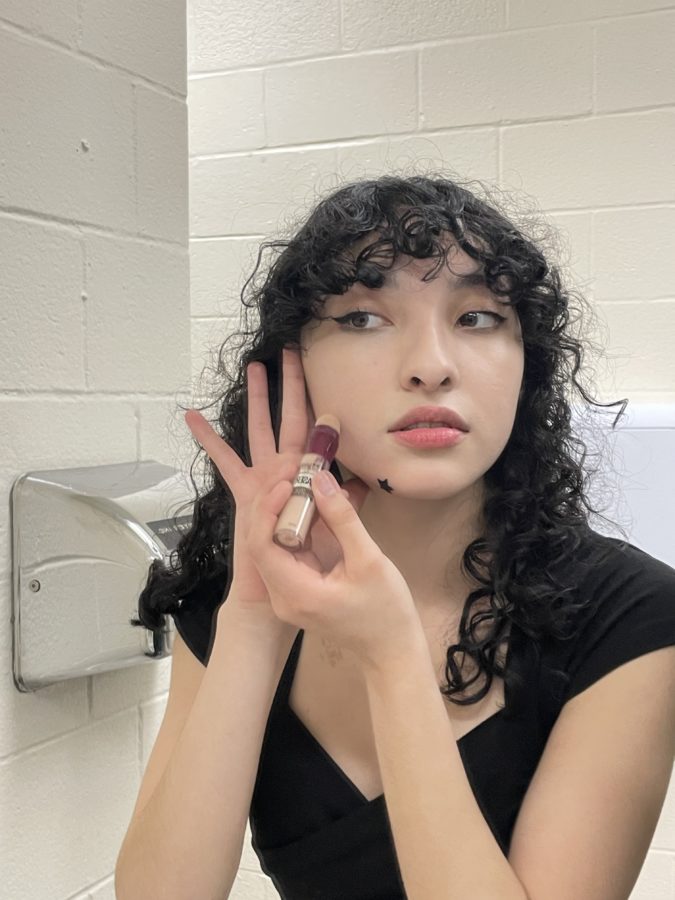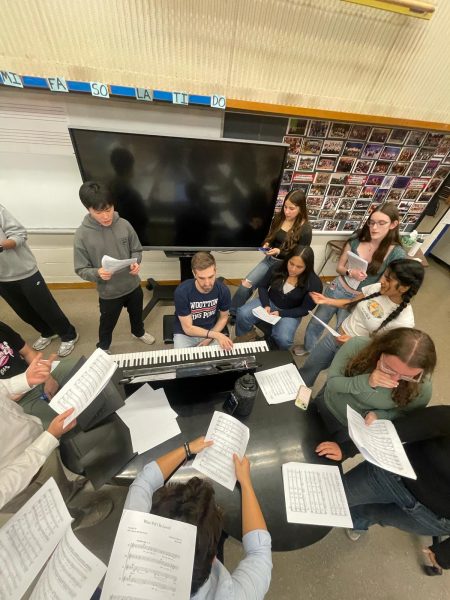Why is aging seen as a bad thing?
Sophomore Lindsey Zuniga reapplies the Maybelline Age Rewind concealer throughout the day, stretching her skin to avoid creasing. “This concealer is really good at avoiding creases, which can look like wrinkles and age my makeup,” Zuniga said.
Since what feels like the beginning of time, it has been propagated that people, especially women, need to do something to prevent looking older.
Even though aging comes with a multitude of health problems associated with it, you’ll find that a majority of young people are focused on preventing wrinkles, sagging skin and gray hairs. Although beauty standards have changed drastically in the past few centuries, one thing always stays the same; the emphasis on youth.
The earliest record of cosmetics being used date back to 1500 and 1550, where men and women of the Indus valley civilization developed herbal remedies and powders to improve complexion, and Cleopatra was known to bathe in donkey milk to preserve her youth, according to Pacific Standard.
Over time the commercialization of makeup and skincare led women to think of it as a necessity and by the time the early 1900s rolled around, tropes about older women being “hags” and “spinsters” were joined by societal norms about what age a woman should be married. Having what was deemed as a more aged appearance was seen as laziness for not taking preventative measures. This is still seen today, as more and more women are getting Botox and using retinol and other expensive dermatology treatments, as they have become less stigmatized.
The age of people coming into dermatologists’ offices curious about starting Botox keeps decreasing, and people aged 20 to 39 make up about 20 percent of all Botox procedures according to the Washington Post . Videos on TikTok where people are instructed on what not to do to prevent wrinkles and people in their early 20s getting Botox garner millions of views and skincare videos are among the most popular videos on the platform, with the #skincare having over 181 billion views. While this can encourage self care, boost confidence and keep skin healthy, the problem arises when people purposely avoid doing normal activities to avoid wrinkles or any signs of aging. Practices like wearing sunscreen everyday and eating healthy are genuinely good for preventing health issues in the future but attempting to use fewer facial expressions, anti-aging straws and sleeping on your back have been encouraged.
Audiences start to wonder what the point of anti-aging is if people are disrupting their life to look a few years younger in the future. There isn’t a point to living into old age if you don’t live life to the fullest. The misogynistic implications of anti-aging are also criticized as women tend to be the main group targeted by this media. Aging is seen as something to celebrate in many cultures and it’s a shame that in ours it is not, especially seeing that the standards for beauty were made when people still died at much younger ages than they do now. The life we experience often shows in our appearance and in many ways, that is beautiful. Smiling a lot less is not worth losing a few wrinkles.
Your donation will support the student journalists of Thomas S. Wootton High School. Your contribution will allow us to purchase equipment and cover our annual website hosting costs.
Heerah Jayakumar is a 2025 graduate.







![The 2025-2026 Editorial Board Alex Grainger, Cameron Cowen, Helen Manolis, Emory Scofield, Ahmed Ibrahim, Rebekah Buchman, Marley Hoffman, Hayley Gottesman, Pragna Pothakamuri and Natalie Pak (Chase Dolan not pictured) respond to the new MCPS grading policy. “When something that used to be easy suddenly becomes harder, it can turn [students’] mindset negative, whereas making something easier usually has a better impact. I think that’s where a lot of the pushback comes from. But if you put emotions aside, I do think this change could help build stronger work ethic,” Ibrahim said.](https://woottoncommonsense.com/wp-content/uploads/2025/09/fqr5bskTXpn0LRQMmKErLuNKdQYBlL726cFXBaWF-600x450.jpg)